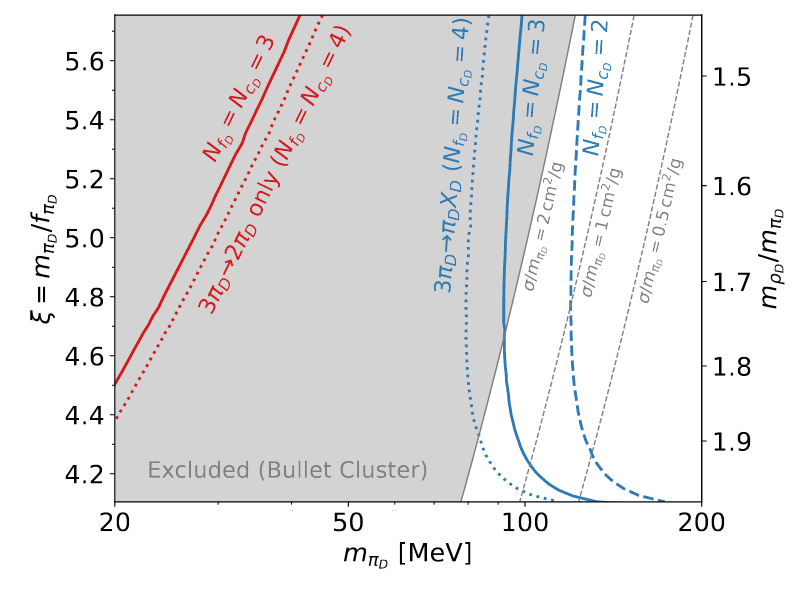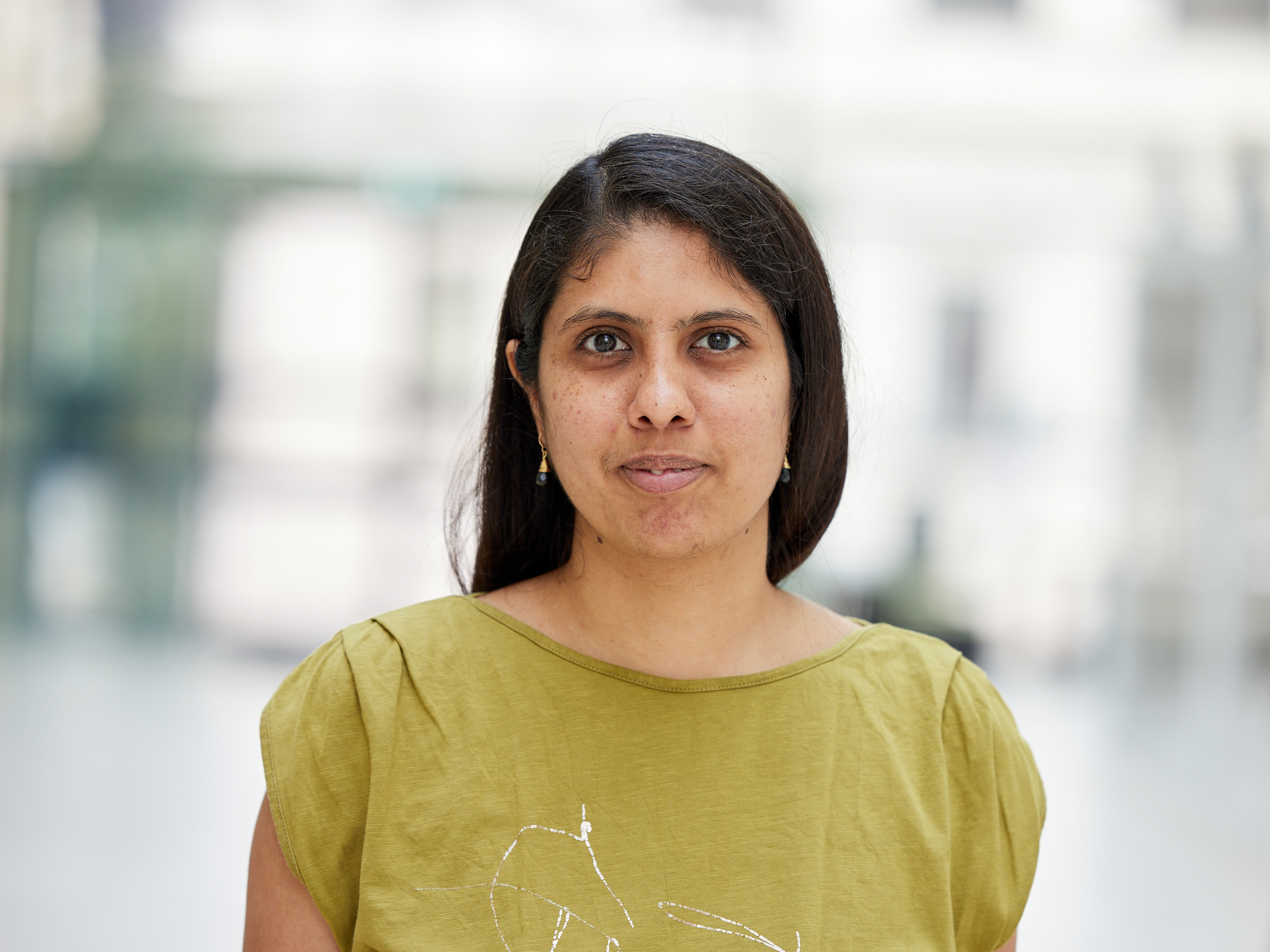Beyond the Standard Model
Suchita Kulkarni
Connecting theory with experiments
I lead a group on dark matter and neutrino phenomenology at the Institute of Physics of the University of Graz. The main aim of my research is to connect theoretically abstract ideas to the experimental signatures and understand the implications of current experimental results for theory parameter space.
My research is driven by two questions. First, what is the nature of the gravitational component of the Universe which can be felt but can not be seen? This is so called dark matter and occupied about 85% of the matter density in the Universe. We have enough evidence that it exists in the Universe, however we have not yet identified the fundamental laws governing this sector. Second, is the mystery of the neutrino masses. In the Standard Model of particle physics, the neutrinos have tiny masses, where do these masses come from and how can we identify such neutrino mass generation mechanisms at experiments forms another angle of my reserch.
I am also active in outreach. If you are interested in hosting a talk by me at your school/university/institute please do not hesitate to contact me.

Construction of strongly interacting dark matter theories: If dark matter is a composite particle similar to the proton in the Standard Model, what kind of underlying theories can predict such particle? We concentrate on designing such theories for several gauge groups and matter content. We also concentrate on interfacing perturbative treatments of such theories using effective field theories such as chiral perturbation theory with non-perturbative inputs obtained by our collaborators. This needs detailed understanding of quantum field theory and analytical calculations.
Phenomenology of strongly interacting dark matter: How should we search for theories written down in previous item? What kind of dark matter relic density generation mechanisms are possible? We concentrate on these questions in this branch of research. It involves numerical simulations, detailed knowledge of Early Universe evolution as well as potential astroparticle avenues. We also carry significant expertise in event generators such as PYTHIA8 in the context of simulations of strongly intereacting theories. We also discuss with our colleagues about development of HERWIG7 generator for the same reason.
Collider phenomenology of heavy neutral leptons: If neutrino masses are generated by their heavy cousines known as heavy neutral leptons, how can we search for them? This is the question we try to answer within this branch. This requires an indepth understanding of neutrino mass mechanisms and collider physics. We use existing collider searches to understand properties of such heavy neutral leptons and suggest further avenues for their searches.
Physics at FCC-ee: Keeping an eye on the future, we are also involved in understanding the capabilities of furture circular collider for new physics scenarios. In particular, we aim to understand the performance of the machine in details and use this knowledge to know what kind of new physics scenarios the machine can explore. The answers to these questions often point to potential improvements to the design of the detector thus preparing us for the future.
- SS2022: Physics Beyond the Standard Model
- SS2023: Astroparticle physics
- WS2023: Physics Beyond the Standard Model
Finished thesis
- Master thesis
Joachim Pomper, Low-energy effective description of light pseudo-scalar mesons in SO(N)-like dark QCD
Thesis being completed
- Doctoral thesis
Sean Mee, Collider phenomenology of strongly interacting dark matter
- Bachelor thesis
Alisa Bkric, The decay of the Heavy Neutral Lepton
Ongoing thesis
- Doctoral thesis
Joshua Lockyer, Darkjet phenomenology at the LHC
A full list of publications can be found here.
- Exploring strongly interacting dark sectors, theorist of the month seminar, DESY Hamburg, November 2023
- Pythia8 Hidden Valley module developements, MITP YongSt@rs darkshowers workshop (online), November 2023
- Heavy neutral leptons: prospects at HL-LHC and FCC-ee, Matter to the deepest workshop, Ustron, Poland, September 2023
- Simulating QCD-like theories at colliders, 795. Wilhelm and Else Heraeus Seminar on Simulations of Quantum Field Theories, September 2023
- Seimi-visible jets aka darkshowers: theory perspective, 11th Edition of the Large Hadron Collider Physics Conference, Belgrade, Serbia, May 2023
- Exploring strongly interacting dark matter, Semiar presentation, Edinburgh Univerisity, May 2023
Myself or my group memebers were involved in following conference organisation
- Member of organising committee, Darkmatter @LHC workshop, May 2024, CERN, Switzerland
- Member of international organising committe, Lepton Photon 2023, Melbourne, Australia
- Member of international organising committee, darkshowers workshop 2022, Zurich, Switzerland
- Parallel session convener, LHCp 2022, Taipei, Taiwan
- Organiser: Darkshowers snowmass activity, 2021-2022 online meetings and final report
Team

Priv.Doz. Dr. Suchita Kulkarni Group leader
